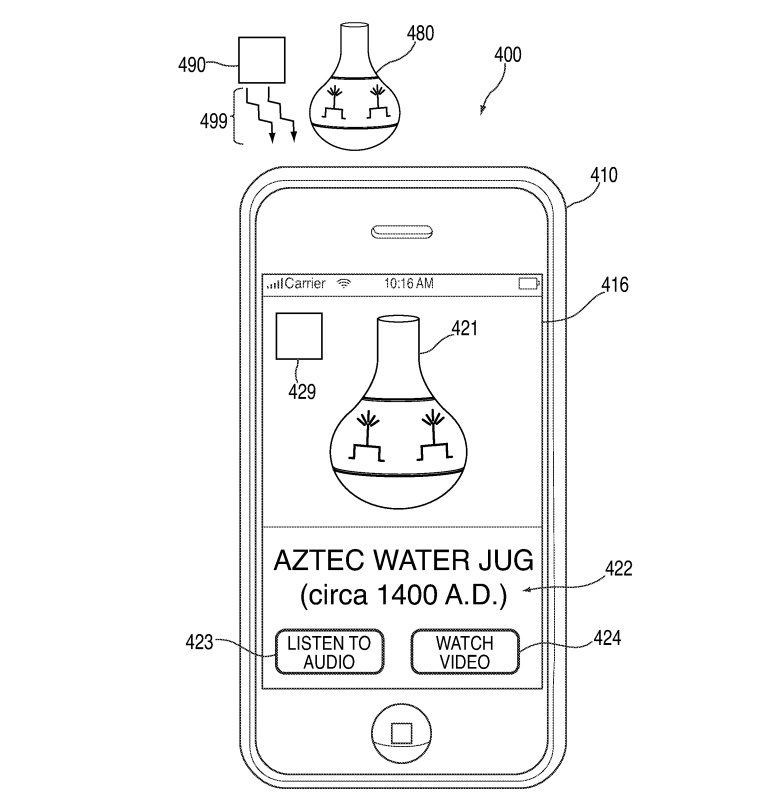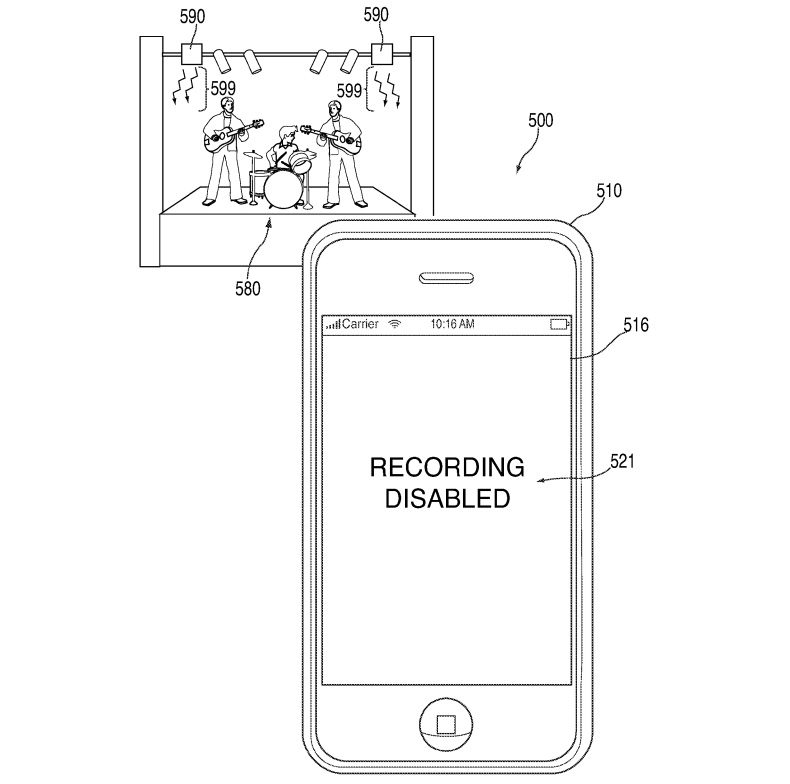Five years after initially publishing their application, Apple have been awarded a patent on a feature that could change the way you interact with live entertainment.
The abstract for the patent defines it as a system that can detect infrared signals captured by a device’s camera, in order to decode the signal and provide the user with the transmitted data. For instance, a user at a museum might be able to take a photo of a piece to receive more information about it, effectively turning their device into a pocket tour guide.
However, looking further into the system reveals that it could be used to fill the exact opposite purpose: specifically, disabling camera functionality on a device.
It’s great news for entertainers whose requests for phones to be switched off during their performance go unheeded, and for audience members whose views are impaired by the swarm of smartphones buzzing across their eyeline. It also has the potential to curve film piracy if such equipment was installed in cinemas.
Other applications of the system, however, are much more insidious and troubling. One concern commonly raised is that police officers could be equipped with infrared sensors to avoid being recorded. On a broader scale, it could bring citizen journalism to a standstill in the wake of mass censorship.
Of course, Apple files thousands of patents per year, so this is by no means a guarantee that the technology will be incorporated into any device in the near future, but it does have potential if the balance between benefit and risk can be found in protecting the rights of both artists and the general public alike. To simply dismiss implementation otherwise is to discard copious examples of systems that have tread the same precarious line.
Do you these kinds of systems? What kind of consequences do you believe implementing them could have? Let us know in the comments.


